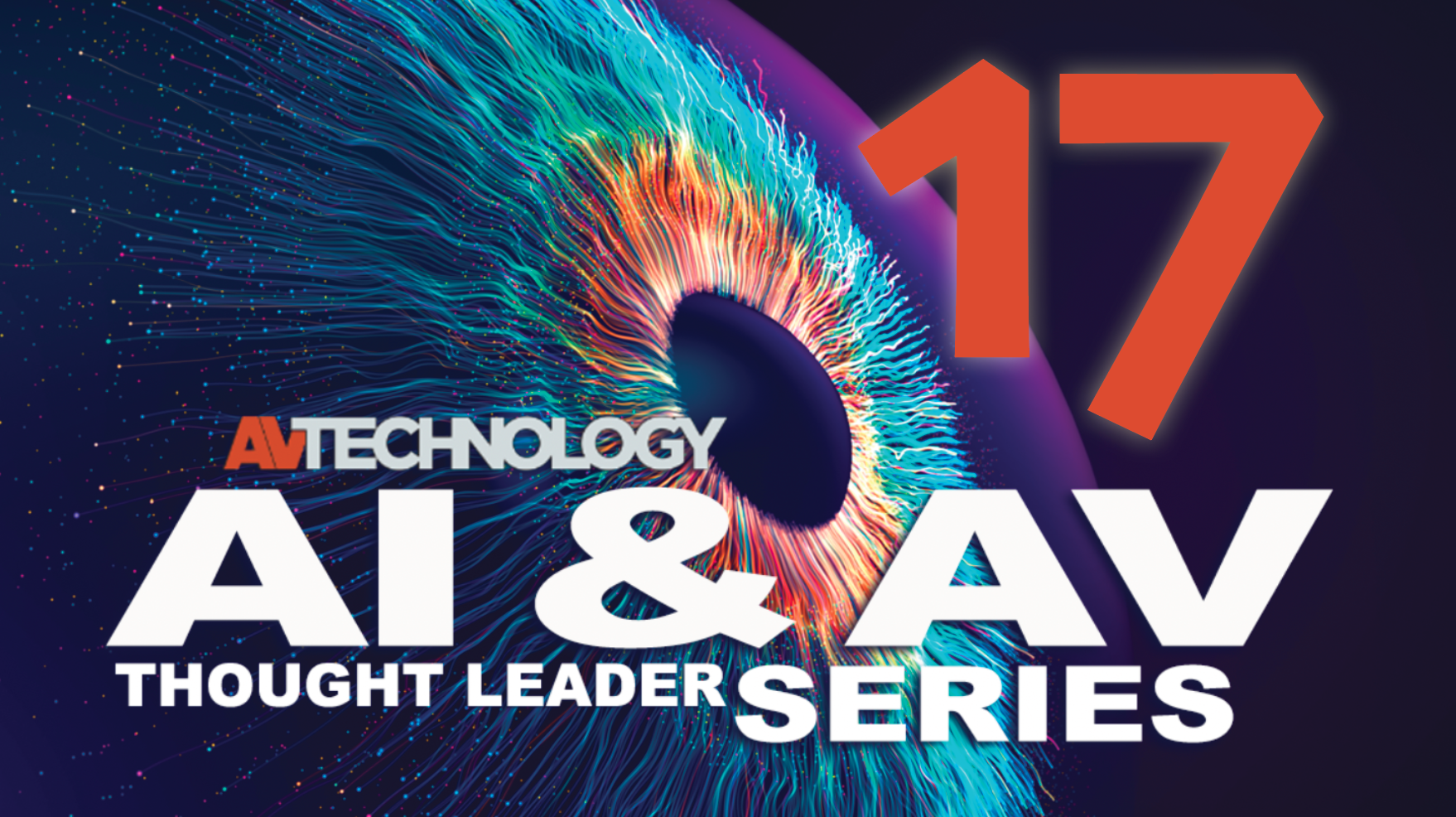
Artificial intelligence (AI) is the most significant technological advancement in my lifetime, and we’re only just pulling up to the launch pad of understanding the far-reaching impact it will have on every aspect of life. One could argue that the Wide World Web, CRISPR, and other revolutionary innovations are more important, but the foundations of these will reach new and unimaginable heights with AI.
During InfoComm in June, AI and the cloud emerged from behind the smoke and mirrors and were on display in a significant number of booths. While some manufacturers and solutions providers have used and deployed both AI and the cloud in the past few years, this is the year that could be transformative.
During InfoComm, I had the chance to interview Shure’s CEO, Chris Schyvinck, she said, “The whole [AI] terminology burst onto the scene when ChatGPT entered the mainstream thought process.” The AV/IT industry and Shure have been using artificial intelligence for a few years to enhance algorithms. “If you look at something like our IntelliMix Room, it can discern the voice you want to pick up and transmit to the other location versus somebody typing on a keyboard or making a rustling sound; that’s artificial intelligence.” Machine learning is used to train the algorithm. “We use machine learning then to bring those noises back into the lab and sort of train that algorithm as to what’s the good sound, what’s the bad sound. We’ve been doing that for three years now,” she said. “Now AI is in everybody’s consciousness, and I think that’s good because there’s a lot of conversations that have to be had around the right way to use it, and where people are doing some more nefarious things, and that has to be managed and figured out and taken care of,” Schyvinck added.
After his keynote at InfoComm on AI, I caught up with Joe Pham, chairman and CEO of QSC | Q-SYS. “We’ve been using NVIDIA GPUs in our Seervision, and there’s more in the pipeline,” Pham said. “We are always evaluating NVIDIA, Intel, and all the semiconductor companies because you need to find the right fit.”
A widespread assumption was that AI is best executed at the edge. “My perspective is changing. I’ve always thought that if you want real-time audio and video processing, you need it at the edge and use the cloud for all the data analytics.” The assumption that Pham has held for more than a decade has been shaken. “The bandwidth between the cloud and the edge is so fast now. It’s not so much the technological limitation of what should be in the cloud; it may turn into more of an economic consideration.
Aurora Multimedia’s CEO, Paul Harris is taking a measured approach. “While the cloud can be great for unifying data and overall collaboration, we all need to take a step back and look at what AV really is and how the cloud may or may not impact the client. As for AI I do think it will play a big role in AV. Control system programming will be assisted, cameras will become smarter in how it grabs the person(s) image, and sound quality in time will have the ability to properly delineate a specific person's voice will be more possible.”
“The cloud offers an extensible platform that can reach endpoints beyond the facility walls, and bring important messages straight to the people,” said Amber Ward, director of marketing at Carousel Digital Signage. “Adding AI to the mix accelerates the workflow by simplifying content creation at the front end.”
Theresa Benson, vice president of Product Management and Marketing at Mersive Technology, added, “AI is poised to revolutionize the AV field, making experiences more personalized, efficient, and immersive.”







